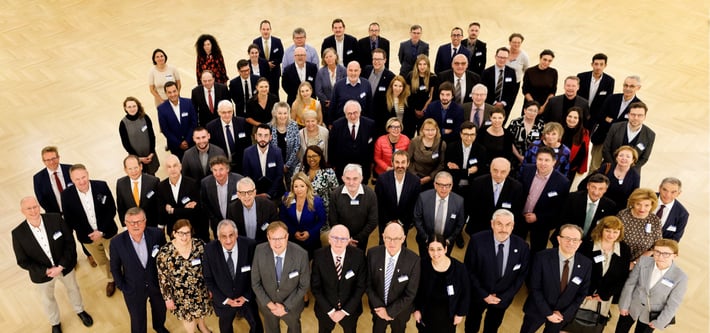Healthcare crisis in Slovenia: Advocating for better conditions, stronger healthcare systems, and protection against violence

It was a great pleasure and honour for Slovenian doctors to host the CPME General Assembly in Ljubljana in March.
The conference highlighted the diverse positions and circumstances of the medical profession across Europe. Despite an unfavorable political climate, the Hungarian Medical Chamber succeeded in consolidating its efforts.
Some progress in the working conditions of medical doctors was reported from Croatia. However, the most alarming news came from the UK, where the common issue of medical staff shortages has been addressed by lowering care standards and introducing less-educated professionals to replace physicians.
This alarming news, from Europe as a whole, shows that the time has come for comprehensive, cross-border solutions that prioritise the health and resilience of the medical workforce, ensuring a sustainable and effective healthcare future for all.
The CPME meetings in Ljubljana took place amid ongoing industrial actions by physicians in Slovenia.
We are very grateful to our distinguished colleagues, Dr Christiaan Keijzer, President of CPME and Dr Joao de Deus, President of the European Federation of Salaried Medical Doctors, who addressed the Slovenian public at a press conference.
They emphasised the right of medical doctors to advocate for better working conditions and remuneration and the necessity of active negotiations. During the assembly, it was also underscored that solidarity and unity among European medical professionals are crucial in these challenging times.
Meanwhile, the strike of medical doctors continues, primarily on a declarative level. The negotiations between the Medical Doctors Trade Union (FIDES) and the government are ongoing, with hopes for at least a temporary solution that benefits the medical profession and, indirectly, the patients who rely on a robust public healthcare system.
Industrial actions by medical doctors in Slovenia have been under strict regulations.
Activities involving the care of children, the elderly, oncology patients, infections, and emergencies were not affected.
The regulations were strictly followed, with many doctors going beyond what was required. After several weeks, most doctors supported the strike by only limiting their work to 40 plus eight hours a week.
Nevertheless, during this period, the government passed a rule further expanding the regulation of industrial activities for the medical profession.
This rule was quickly replaced by a law that virtually prohibited industrial actions for medical doctors.
An appeal to the constitutional court is underway, and the international medical community will be notified if necessary.
Violence against medical professionals, not only doctors, has increased in many countries.
The same situation is observed in Slovenia, where negative media attitudes may have contributed to this violence.
To better control the situation, we have proposed an amendment to the Penal Code, following the examples of some European countries such as Germany and France, to provide better protection for healthcare workers.
According to Slovenian legislation, a law can be proposed to parliament by individual voters with 5000 signatures supporting the proposed change. We have successfully gathered over 7500 signatures! The campaign will continue during the parliamentary discussion of the legal amendment. We strongly believe that the new law will improve working conditions for all healthcare workers.
Medical doctors in Slovenia are fully aware that the profession is changing. To be well-prepared for these changes, we must maintain the highest level of knowledge, skills, and ethical standards. Additionally, it is our obligation to guide and support decision-makers in shaping the future of healthcare.